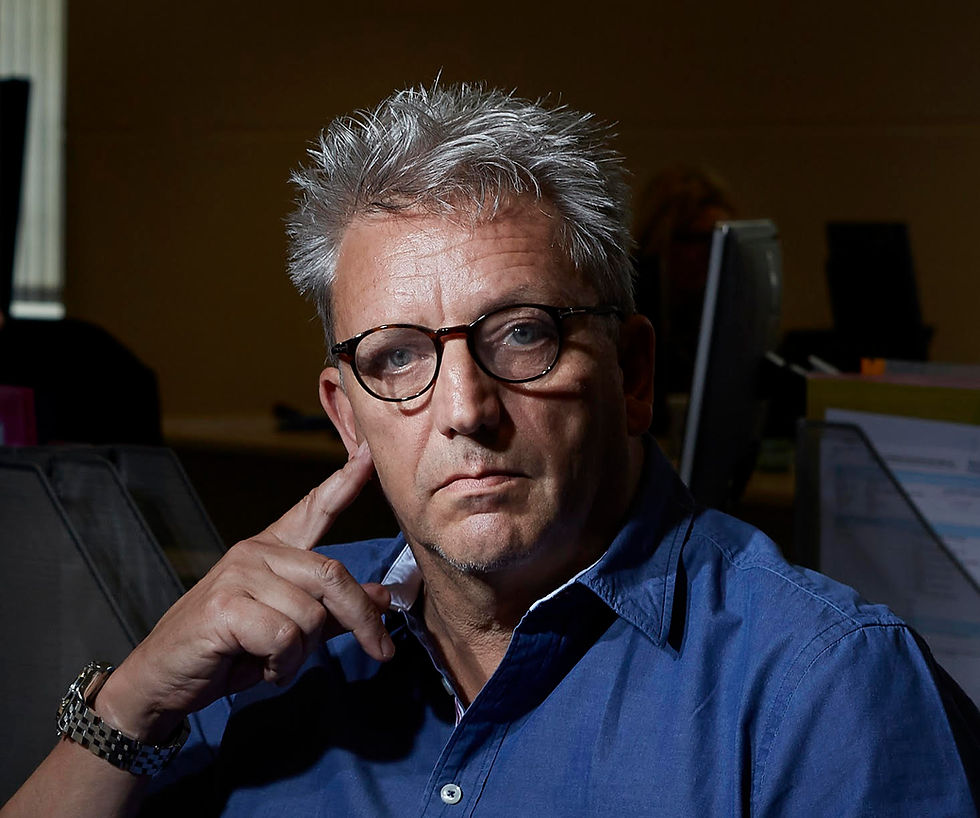Offshore Europe Reflections
- axisaberdeen

- Sep 20, 2023
- 4 min read
Updated: Sep 25, 2023

Last week saw Offshore Europe celebrate its 50th Anniversary, returning for the first time since 2019. It was great to have a buzz back in the city, great to see many faces we haven’t seen for a while, it felt just like old times but something was amiss.
From walking into the conference itself, to the panel discussions, to the surrounding events – everywhere lacked visible diversity. The first breakfast briefing kicked off with an all-male panel (manel). Not great, but it wasn’t all Scottish voices, and we don’t know their background stories – people are complex, and of course not all facets of diversity are visible.
When challenged about the diversity of the panel not a single panel member said 'yeah, we got this wrong.' Not a single panel member gave an adequate response. They got defensive and talked about educating young people to enter the industry. However, that’s what we have done for decades – we don’t retain diverse candidates on the scale that we employ them.
Companies have systemic problems that do not support diverse employees. Our industries have policies and processes that were developed based on how people lived decades ago. Whilst some inclusive leaders are setting the standard for our industry and making positive progress towards inclusive workplaces, many leaders still demonstrate that they don't buy into the benefit of diversity. We still seem to have old boys’ networks. However, the majority workforce is now Millennials and Gen Z and they demand something different.
We would have loved to hear how these leaders are driving diversity in their organisation.
How they educate their employees and leaders on the business benefits of diversity, equity and inclusion.
How they engage their employees and resources groups to support policy and procedural changes.
How they learned from the pandemic and leveraged a (truly) flexible working approach.
How they’re changing their paternity leave and enhancing shared parental leave.
How they are changing their culture.
An audience member commented that the panel are allies. The problem is you can label someone, anyone, an ally, but ally ship is active, not passive. It’s not a fashion or a fad, and if our allies were active, we wouldn’t still be having this discussion. The problem with having 'allies' speak on behalf of others, is that it silences the voice of the marginalised.
It should be noted, it’s not a panel member’s responsibility to ensure diversity (though there is good advice available here should they want to demonstrate ally ship). For many panel members this could be their first time speaking on a panel, their 'big shot.' It’s the organiser's responsibility to view their event arrangements through a diversity lens. This might mean enlisting expert support with this, or reaching out to the many diversity organisations across the energy sector, such as AXIS Network, AFBE, InterEnergy, Disability Scotland etc.
Like the Energy Transition, changing the demographic of our employees, our conferences and our events requires effort and investment. To paraphrase one of the speakers when they spoke of Energy Transition, 'It’s not policy [holding you back]. Look in the mirror.'
We also heard stories of parents on maternity leave looking to attend the conference with their babies in tow. After all, many new parents are keen to remain connected to their sector during periods of caring leave and be involved in what is an important biannual event. For those with very young children, often the only practical option is to take the baby along - especially when breastfeeding. A game of hokey-kokey-entrance ensued. One set of new parents took over an hour to get through the entrance, even though they asked in advance. Why did they persevere? Because the policy was shared prior to the event that babies could attend. We could forgive the organisers if this was a blip as it was day one of the event, their first since 2019, and babies at a conference is a new concept expect this exact same issue made national headlines in 2015.
The conference organisers did offer one specific D&I event, however this competed with all the technical events and was in a small meeting room at the far end of a corridor, away from the buzz of the conference. The event had a huge panel of experts who shared their very personal stories covering ethnicity and social mobility, ethnicity and career ladder, neurodiversity and being mixed race, being transgender, being female in a patriarchal culture, ally ship and social mobility, and also touched on the intersectionality of many of these issues, yet the event spoke to a small audience of the converted. Why was this event not on the centre stage and part of the mainstream conference activity?
As an industry that needs to desperately change, and frequently asks, begs, and pleads for new talent to come in, why are we not weaving D&I into every discussion just like safety and ethics? Why is it always the side show, a tick box? Is it because leaders and organisers don’t see it as important? Do they simply not understand the business benefit, or does having one D&I event mean the industry is ticking that box? Diverse teams are linked to strong improvements in wellbeing, mental health, people development, retention, attraction, business performance, risk mitigation, safety, financial performance; it is integral to your business success.
At AXIS Network, our ultimate aim is to no longer exist, because we are no longer required. Our commitment is this; once gender balance is achieved, we can cease to exist.
Offshore Europe was somewhat disheartening for us; AXIS Network was created at Offshore Europe in 2013. We looked around at that conference in 2013 and asked ourselves, 'where are all the women?' In 2023, the bikinis may be gone, but we're still asking ourselves the same question.




